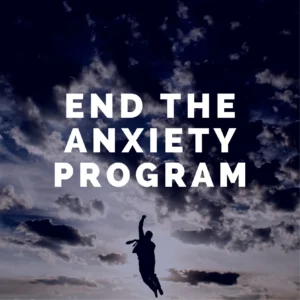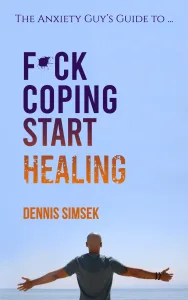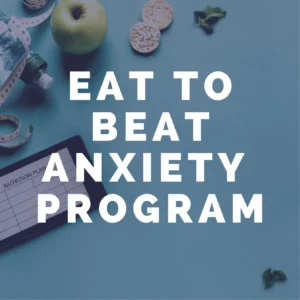Understanding Symptom Tracking
Today, we are diving deep into symptom tracking, a habit and pattern that many health anxiety sufferers fall into. This habit only perpetuates their anxiety and keeps them in a deep state of sensitivity. Let’s dive in and understand this more. I’ll share a few personal experiences and a solution.

Table of Contents
Symptom Tracking’s Role in Health Anxiety
Symptom tracking is the need to pay very close attention to your bodily symptoms out of a fear of them producing a negative physical reaction, disease, or illness in the present or future. This habit makes us feel vigilant and safe to some degree, as if the worst won’t happen because we’re constantly monitoring our bodies.1
How Symptom Tracking Signals Danger
When we continuously track our symptoms throughout the day, we signal our brain and body that the alarms must continue. This behavior tells the brain that we’re not safe, and if the brain doesn’t feel safe, the body won’t either. This cycle perpetuates the state of anxiety and sensitivity.2
The Challenge of Letting Go of Symptom Tracking
Many people find it difficult to stop tracking their symptoms because they feel a dire need to control their situation. However, the challenge is not just about breaking the habit of tracking but also about letting go of the need for control.3
Uncertainty is Good For You!
To overcome the habit of symptom tracking, we need to embrace uncertainty. While we can control certain aspects of our lives, such as nutrition and sleep, we cannot control every physical reaction our bodies have to life. Believing that our bodies can take care of themselves and that we can handle and heal whatever shows up is crucial.
Changing Our Perception of Symptoms
For a long time, we’ve associated symptoms with physical problems, leading us to seek physical solutions. However, many health anxiety symptoms stem from a sensitized brain and body due to chronic fear and anxiety. Understanding that these symptoms are often related to a dysregulated nervous system can help shift our focus away from constant monitoring.4
Practical Steps to Reduce Symptom Tracking
Gradually Reducing the Need for Certainty
One effective approach is to gradually reduce the need for certainty by taking small steps every day that involve embracing uncertainty. For example, smiling at someone when you walk by them or engaging in small acts that challenge your need for control. This helps to reprogram your brain to feel safe without constant vigilance.
Creating New Associations with Symptoms
Another strategy is to create new associations with your symptoms. Instead of seeing them as signs of impending doom, recognize them as temporary sensations related to a sensitized nervous system. This shift in perception can reduce the anxiety associated with symptom tracking.
Conclusion: Moving Towards a Healthier Mindset
In conclusion, symptom tracking is a common but harmful habit for health anxiety sufferers. By understanding the reasons behind it and taking steps to embrace uncertainty, we can break free from the cycle of anxiety and develop a healthier mindset. Remember, the goal is not to eliminate all symptoms but to change how we respond to them.
Additional Resources
If you found this podcast helpful, please leave a positive review on Apple Podcasts. For more information on the Health Anxiety Recovery Program, visit TheAnxietyGuy.com under Health Anxiety. Start your healing journey today with the tools and strategies you need to reclaim control over your health and well-being.
Thank you for joining me on this episode of the Health Anxiety Podcast show. Make sure to subscribe so you don’t miss another episode, which comes out every Saturday morning PST time. Remember, you’re not alone on this journey, and there are resources available to support you. If you’re looking for a comprehensive program to help you overcome health anxiety for good, be sure to check out the Health Anxiety Program at TheAnxietyGuy.com.
Bye for now.
Citations
- Symptoms of Anxiety and Depression Among Adults: United States, 2019 and 2022 Link: CDC Report ↩︎
- Health, psychosocial and cognitive factors associated with anxiety symptoms Link: Current Psychology ↩︎
- Recent Advances in the Understanding and Treatment of Health Anxiety Link: Current Psychiatry Reports ↩︎
- Health anxiety and illness-related fears across diverse chronic conditions Link: PLOS ONE ↩︎




